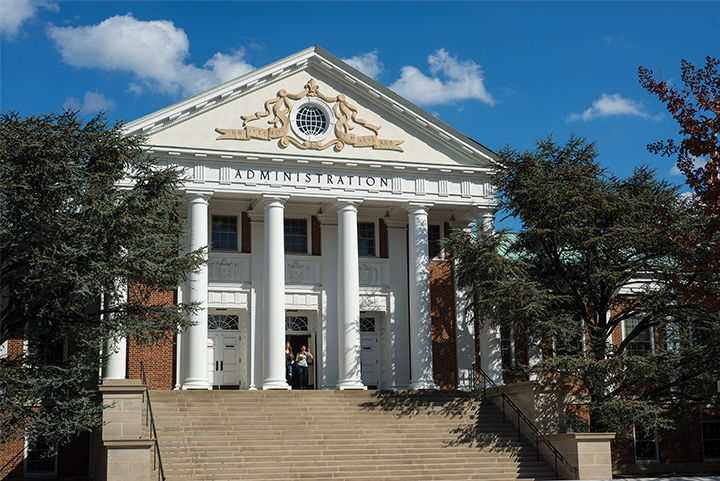When you received the proverbial fat envelope granting you admission to the University of Maryland, the first thing your nosy uncle probably did was look up the university’s place in the college rankings. These rankings might ultimately be meaningless in real life, but they are unfortunately used often as a starting point for conversation in our competitive society. Acknowledging that this is the case, any convenient maneuvering the university can do to make itself look good should be part of its strategy, so long as it doesn’t interfere with the student experience or service of education to the state of Maryland.
Perhaps intentionally, the methodology for the U.S. News & Word Report rankings, probably the most prominent set, is quite elaborate. The total score is based on a wide variety of factors. These include six-year graduation rate, first-year retention rate, class sizes, faculty salaries, SAT and ACT scores, education-related spending, and alumni giving rate. Some of these factors contradict one another or create perverse incentives for attending a university.
For example, U.S. News emphasizes the proportion of classes enrolling fewer than 20 students. However, that could just as easily be an indication that a course is irrelevant or unappealing as it is an indication of personal attention from instructors. The inclusion of the graduation rate in the rankings could incentivize universities to hand out diplomas to anyone regardless of whether the student has earned it. Considering faculty salaries in the rankings is complicated as well. Salaries depend significantly on the subject taught, so stacking up on finance and engineering professors, or otherwise manipulating the sizes of departments could obscure the differences between schools.
The very different Academic Ranking of World Universities, published by Shanghai Jiao Tong University, is equally flawed. It focuses on alumni and faculty Nobel Prize wins, “highly cited” researchers, and publication of papers only in the journals Nature and Science. This ranking basically focuses only on elite professors and has very little to do with the experience of the typical undergrad. Clearly, no set of rankings is a valid and reliable portrait of a university.
However, if there are things the university can do to boost its stats in some way while ensuring there are no breaches of integrity or deviance from the educational mission, then those strategies would be worth pursuing. The in-progress partnership between this university and the University of Maryland, Baltimore, is potentially an example of this, widening this university’s academic scope by including the medical and law schools. There are no obvious drawbacks to this arrangement.
On a more subtle basis, perhaps some other clever moves would be advisable. For example, the Testudo course catalog reveals classes seating 20 students, as well some seating 50. If these classes were changed to 19 students and 49 students, respectively, they would cross the U.S. News thresholds for class size indicators.
Further emphasis on “cash cow” academic programs could bring in money that could be used to raise the university’s profile. For example, the master of finance program in the business school is more valued outside the United States and attracts a large number of international students who pay high tuition rates. Extending this university’s global reach while generating a financial boost is a good plan. This university doesn’t benefit from the centuries of prominence that have allowed America’s elite private institutions to accumulate massive endowments, so some creativity is called for.
A few years ago, George Washington University got in trouble for fraudulent reporting of incoming student statistics for ranking purposes. It would be a terrible idea to think short-term and embarrass the university in such a fashion. However, it is still painful to see Penn State, Wisconsin and Illinois just above Maryland’s No. 57 spot in the U.S. News rankings when they are clearly inferior. Even if it takes a few gimmicks to pass these Big Ten pretenders, we Terps should demand to take our rightful place on top.
Daniel Galitsky is a senior economics and finance major. He can be reached at dgalitskydbk@gmail.com.



